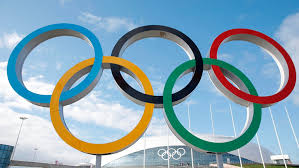The Olympic Games stand as a testament to humanity’s enduring spirit of competition and unity. Originating in Ancient Greece as a celebration of athletic prowess and cultural pride, the Olympics have evolved into a global phenomenon that transcends borders, bringing together nations in a celebration of sport and camaraderie. Join banger casino live and trace the fascinating journey of the Olympics from its ancient origins to the modern-day spectacle we know and love.
The Origins of the Olympic Games: Ancient Greece to Modern
1. Ancient Greece: The Birthplace of the Olympics
The Olympic Games were first held in 776 BCE in Olympia, Greece, as a tribute to the Greek god Zeus.
- Purpose and Significance:
The games were more than just athletic competitions; they were religious festivals that included sacrifices and celebrations at the temple of Zeus. - Athletic Events:
The ancient Olympics featured events such as running, wrestling, long jump, javelin, discus throw, and chariot racing. Competitors were exclusively male, and athletes competed in the nude as a symbol of purity and strength. - Participants and Rules:
Only free Greek men could compete, representing various city-states. Women were barred from participating or even watching the games under penalty of death. - The Olympic Truce:
A tradition of peace, the Olympic Truce allowed athletes and spectators safe passage to Olympia, even during times of war.
The Decline of the Ancient Olympics
By 393 CE, the rise of Christianity and the decline of Greek cultural influence led to the end of the ancient Olympic Games. Emperor Theodosius I banned pagan festivals, including the Olympics, as they were associated with Greek polytheism.
The Revival of the Olympics
1. The 19th Century Movement
Centuries later, the Olympic Games were revived as part of a growing interest in classical antiquity and international cooperation.
- Pierre de Coubertin:
A French educator and historian, Coubertin was inspired by ancient Greek ideals and sought to promote international peace through sport. In 1894, he founded the International Olympic Committee (IOC). - The First Modern Olympics (1896):
Held in Athens, Greece, the inaugural modern Olympics featured 14 nations and 43 events across nine sports. Unlike the ancient games, the modern Olympics welcomed international competitors and reinstated the tradition of awarding medals.
The Evolution of the Modern Olympics
1. Expanding Scope and Inclusion
The Olympics have grown from a small gathering to a global spectacle, with significant milestones along the way.
- Women’s Participation:
Women first competed in the 1900 Paris Games, participating in events like tennis, sailing, and golf. Today, gender equality is a core principle of the Olympics, with nearly equal representation across events. - Winter Olympics:
Introduced in 1924 in Chamonix, France, the Winter Games highlighted sports like skiing, ice hockey, and figure skating. - Paralympic Games:
Founded in 1960, the Paralympics celebrate athletes with physical disabilities, promoting inclusivity and inspiration. - Youth Olympic Games:
Launched in 2010, these games focus on athletes aged 15 to 18, fostering young talent and future Olympic champions.
2. Cultural and Political Impact
The Olympics have often mirrored global political and social shifts:
- Berlin 1936:
The games were used by Nazi Germany as a propaganda tool, but African-American athlete Jesse Owens’ four gold medals challenged the regime’s ideology of racial superiority. - Cold War Rivalry:
The Olympics became a stage for ideological competition between the United States and the Soviet Union, with boycotts in 1980 and 1984 highlighting political tensions. - Modern Challenges:
Issues such as doping scandals, political protests, and concerns over hosting costs have underscored the complexity of organizing the modern Olympics.
Iconic Moments in Olympic History
1. Usain Bolt’s Speed
The Jamaican sprinter set world records in the 100m and 200m events, becoming an icon of athletic excellence.
2. Nadia Comaneci’s Perfect 10
At the 1976 Montreal Games, the Romanian gymnast became the first to score a perfect 10, redefining the standards of gymnastics.
3. The Miracle on Ice (1980)
The U.S. men’s ice hockey team defeated the heavily favored Soviet team, symbolizing triumph against all odds.
The Olympics Today
1. Global Reach
With over 200 nations participating, the Olympics are a truly global event, uniting people across cultures and borders.
- Broadcasting and Digital Presence:
The Olympics reach billions of viewers worldwide through television and online platforms, creating moments of shared celebration. - Diverse Events:
Modern games include traditional sports like athletics and swimming, as well as newer additions like skateboarding, surfing, and esports (to be introduced).
2. Sustainability Efforts
Recent Olympics have emphasized sustainability, with initiatives like eco-friendly venues and renewable energy use, as seen in the Tokyo 2020 Games.
The Future of the Olympics
1. Technological Innovations
Advancements like virtual reality, artificial intelligence, and enhanced broadcasting are poised to transform the way audiences experience the Olympics.
2. Greater Inclusivity
The Olympics continue to expand representation, promoting gender equality, accessibility for athletes with disabilities, and participation from emerging nations.
3. Focus on Sustainability
Future games aim to prioritize environmental consciousness, reducing waste, and emphasizing long-term benefits for host cities.
Conclusion
The Olympic Games have come a long way since their inception in Ancient Greece, evolving into a global celebration of athletic excellence, cultural exchange, and human unity. Despite challenges, the Olympics remain a beacon of hope and inspiration, reminding us of the power of sport to unite and uplift.
As we look forward to the next chapter in Olympic history, one thing is certain: the games will continue to capture the imagination of the world, embodying the timeless ideals of excellence, respect, and friendship.
From ancient stadiums to modern arenas, the Olympics stand as a testament to humanity’s enduring pursuit of greatness.
Read Also: Top 10 Online Games with the Best Voice Chat Features









